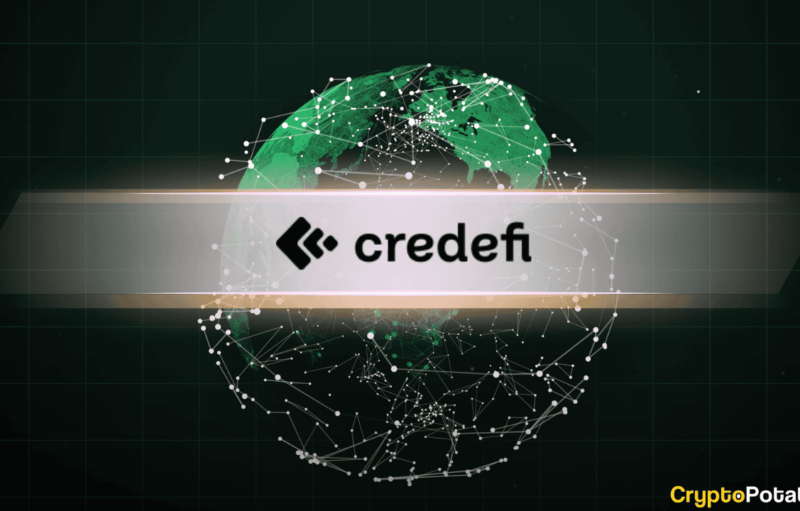
[Featured Content]
It has been over 10 years since Bitcoin reached the open world and advanced blockchain further. So far, the technology has reached mainstream users and many businesses and government officials have already considered the benefits of using it in a long list of industries ranging from agriculture and real estate to healthcare and voting.
Consequently, dozens of new projects are popping up each year, competing against each other in the somewhat futile task of developing the “best” blockchain. These projects often emphasized the supposed market availability of their product, arguing that it is secure, scalable, and overall, outperforming a supposed rival.
Regardless of whether the characteristics they claim to have are true or not, these projects represent independent and disconnected blockchains. They involve different ecosystems, hashing algorithms, consensus models and communities. As a result, the blockchain space is becoming increasingly isolated and its main philosophical concept (the idea of decentralization) is being undermined.
Currently, a blockchain is not aware of information that might exist in another blockchain. For example, the Bitcoin blockchain (BTC) exists completely independently of the Ethereum blockchain (ETH), in the sense that it is not aware of any information recorded there, and vice-versa. Blockchain-based projects are isolated from one another, even though they exist in the same industry and work with the same technology.
Why is Blockchain Interoperability/Cross-Chain Important?
Put simply – to enable mass adoption and allow the industry to evolve further. As the crypto space has become highly competitive, some projects tend to work hard to outperform their opponents, rather than focusing on the overall infrastructure – the scalability race is a particularly good example to illustrate this.
Originally embodying the idea of overcoming the underperformance of BTC, as the original blockchain can, at best, handle only seven transactions per second (TPS), several other blockchain projects have ended up reporting numbers in the 40,000 TPS.
On the other hand, the estimated capacity of the Visa network is around 24,000 TPS, although ostensibly it must do only 1,700 transactions per second on average, despite the ever-present demand. Any blockchain, even Bitcoin, is far from beating Visa in terms of engagement, meaning it can be a little difficult to get to 40,000 TPS.
No company would want to process their payments on a blockchain, no matter how scalable, if the overall infrastructure is not interoperable and secure. While its output may be better than Visa’s, it will not have the same usability around the world if it remains isolated. Meanwhile, cards issued by global card companies (Visa, MasterCard, American Express, etc.) are interoperable between merchants and ATMs around the world.
Likewise, the Internet allows you to access and modify multiple sets of data through application-specific interfaces (APIs). If it were not interoperable, it would not be able to transform itself into what it is today: a truly global and easy-to-use network. The same applies to blockchains as, to get popular appeal, they need to show that they can work together without a hitch.
Wanchain Aims to Solve This
This is exactly where Wanchain comes into play, as it is among the few decentralized cross-chain solutions that currently exist on mainnet, already providing support to several different blockchain projects such as Bitcoin, Ethereum, Wanchain, EOSIO, Binance Smart Chain and XRP Ledger, with Dogecoin and Dfinity’s ICP also being supported via WanLabs’ Instant Cross-platform.
Wanchain is now announcing the added support to Litecoin on its platform, one of the biggest crypto projects in the industry.
The goal of Wanchain’s platform is to build a decentralized way of bringing together these separated blockchain networks to help blockchain reach all its potential.
This platform is secured by Wanchain’s PoS validator nodes, reaching consensus using a proprietary Proof of Stake consensus algorithm called Galaxy Consensus. Nodes need to stake WAN tokens before they can validate transactions on the network (detailed information about this can be found in the whitepaper).
Cryptocurrency exchanges are still a strong means of interoperability in crypto space. If, for example, someone needs to trade 10 ETH for BTC, they will likely end up going to a centralized trading platform, as this is currently the most popular method – and relatively convenient.
However, it has its downsides, crypto security being the most obvious (“not your keys, not your crypto” is a famous proverb in the crypto world that accurately describes why depositing your assets in a hot wallet always involves risks).
So, despite several projects working on blockchain interoperability solutions, networks remain largely isolated. This is exactly the problem that Wanchain is solving.
Binance Futures 50 USDT FREE Voucher: Use this link to register & get 10% off fees and 50 USDT when trading 500 USDT (limited offer).
PrimeXBT Special Offer: Use this link to register & enter POTATO50 code to get 50% free bonus on any deposit up to 1 BTC.
The post appeared first on CryptoPotato






